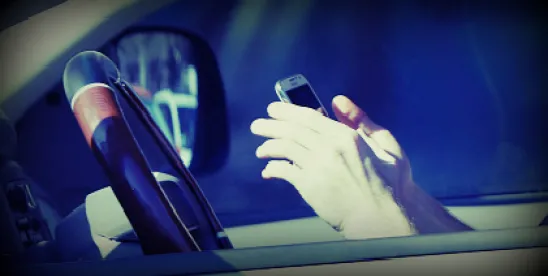Good afternoon TCPA World. For those of you that read my last post, you know that I have been on the hunt for an interesting/juicy TCPA case. Well, today it happened, coming out of the Eleventh Circuit Court of Appeals (DISCLOSURE, THIS IS GOING TO BE A LENGTHY POST). The case is Drazen v. Godaddy.com, LLC, No. 21-10199 (11th Cir. July 27, 2022), which originally was a TCPA class action in the Southern District of Alabama, filed way back in August of 2019. Interestingly enough, there were two other related class actions that were both filed in Arizona which were consolidated with this one. Let’s dive in so you can understand why I’m so excited about this one (or maybe I’m just a weird TCPA nerd, but I digress).
After joining forces, the 3 plaintiffs (Drazen, Herrick, and Bennett) negotiated terms of a settlement with Godaddy, and thereafter submitted a proposed settlement agreement to the court. The class was defined, summarily, as anyone in the United States who received a call or text message between November of 2014 and December of 2016. Godaddy made $35m available in settlement funds to the class (yeah, I know, that’s a lot of coin; BUT WAIT). Class members had two options for compensation: (1) receive $35 in cash; or (2) receive a $150 VOUCHER TO BE USE EXCLUSIVELY AT GODADDY. So let me get this straight, these class members are complaining about calls from Godaddy about it’s services but now have the option of getting a $150 voucher to use only at Godaddy (that makes total sense!). Regardless, another issue in this case is that one of the 3 named plaintiff’s, Herrick, only received a single text message. For purposes of not confusing anyone, a named class representative has to, among a few other things, have standing to be able to recover; the eleventh circuit has held that receipt of a single text message does not suffice as being a concrete injury, such that there is no standing, such that you can’t recover. So, while Herrick fell into the defined class, Herrick did not have standing per this eleventh circuit rule. Interestingly enough, while the court agreed that Herrick did not have standing and should be removed as a class representative, the court nevertheless held that other absent class members that only received a single text message could still recover if they reside in a circuit that allows one to recover despite receipt of a lone text (that also makes total sense!). Ultimately, the court certified the class and approved the proposed settlement agreement.
INSERT VILLAIN JUAN PINTO, one of the class members that received the class notice and objected to the settlement. His primary objection was that the court approved the attorneys fees on the basis of $35m total settlement fund when there were many class members who were going to be compensated with Godaddy vouchers. In class actions, when class members are being compensated with coupons, the court’s are required to implement a more stringent review of class counsel’s fee. The court here did not do that. Faced with Pinto’s objection, the court actually lowered class counsel’s fee from $8.75m to $7m, but Pinto nevertheless appealed.
Things get even MORE interesting here: the issue on appeal was whether the Godaddy vouchers fell within the definition of a “coupon”; after outlining the lengthy background facts above, the Appellate Court conveniently sets out the first issue as the need to determine whether the court below had subject matter jurisdiction in the context of Article III standing. For purposes of not making this post a novel, the Appellate Court held that it didn’t (i.e. the issue of the Godaddy coupons was never discussed; no standing = no class certification = no settlement). For those that are interested, the primary reason articulated by the Appellate Court in concluding lack of Article III standing, and in turn lack of the court’s subject matter jurisdiction, was based on the class definition – under the definition even those who only received a single text message could be compensated with the $35 cash or Godaddy voucher. As touched on above, receipt of a single text message does not suffice as a “concrete” injury for purposes of Article III standing. And in order to recover, you have to have standing. Many are probably thinking how the court below could have botched something that seems rather simple. Well, in a case called Cordoba v. DIRECTTV, LLC, 942 F.3d 1259 (11th Cir. 2019) the same Court held that only named class representatives need Article III standing for a class to be certified. So, by agreeing to remove Herrick (plaintiff who received only one text message), the remaining named Plaintiffs all had standing, such that the court could certify the class under Cordoba. The issue was that the court below missed the part in Cordoba where the Court went on to explain that absent class members still need to have standing to recover. Anyway, I could talk about this case for another few paragraphs, but I will spare you TCPA World; for other TCPA nerds with questions about this one, please feel free to reach out and I will talk your ear off about it.
TAKEAWAY: In the Eleventh Circuit, when a class seeks certification for the sole purpose of a damages settlement under FRCP 23(e), the class definition must be limited to those individuals who have Article III standing.




 />i
/>i

